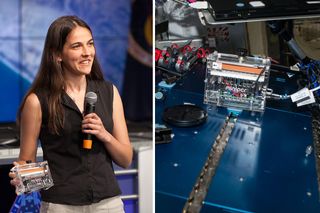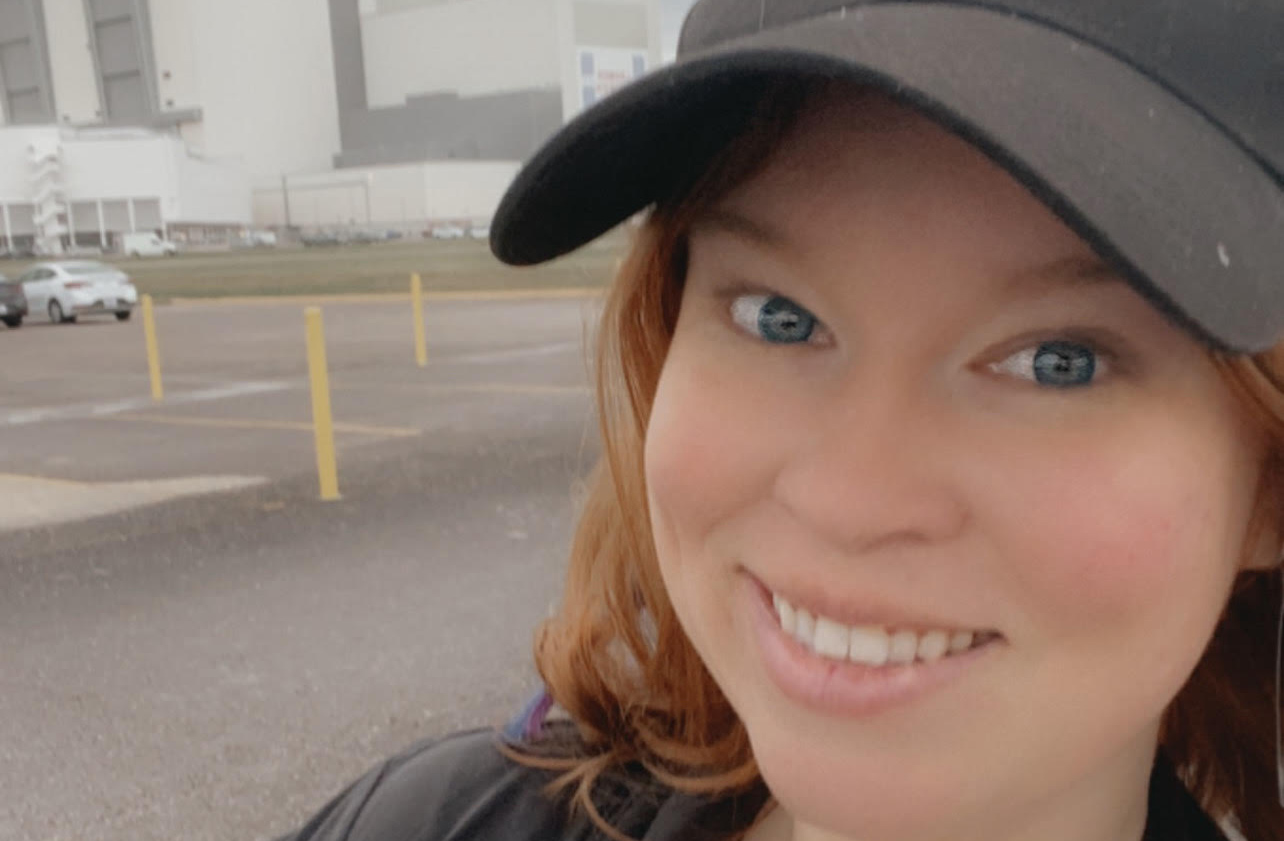Genes in Space Student Experiment Probes Astronaut DNA

The first experiment to use an advanced, miniaturized DNA detection technology in orbit flew to the International Space Station early last month. The experiment, designed by 17-year-old student researcher Anna-Sophia Boguraev, blasted off on April 8 aboard SpaceX’s Dragon cargo ship, whose Falcon 9 rocket landed on a floating barge after launch.
The new experiment will test the effectiveness of polymerase chain reaction (PCR) testing in microgravity — technology that could eventually help investigate a connection between genetic changes in an astronaut’s DNA and a weakened immune system, which has been observed in space. This first experiment, though, will probe zebrafish DNA to test the technology.
"The ISS is far from Earth, but is much more connected than a Mars mission or deep-space mission," Boguraev told Space.com. "By understanding these markers, we can understand more about the immune system in space." [Photos: SpaceX Falcon 9 Rocket Launch and Landing for CRS-8 Mission]
Understanding the effects of zero gravity and space travel on the human body is essential to crew health, said Mark Mulqueen, Boeing's space station program manager. "Long-duration space travel is here," he told Space.com. "It’s coming, and we will be going to Mars and beyond. If we can understand how space affects our DNA, we can better safeguard our crew."
According to Mulqueen, over 330 proposals were submitted to Genes in Space, and industry experts selected Boguraev’s as the best of the best. The experiment uses an advanced tool called a miniPCR machine to make multiple copies of a specific DNA sequence.
On Earth, lab researchers commonly use a PCR machine to make copies of DNA sequences, since it allows them to look deeply into processes within DNA samples. Traditionally, PCR machines are very big and bulky, so it hasn't been possible to use this type of technology on the space station until now. The company miniPCR dramatically scaled down the machine in hopes of using it in schools and in the field.
"What’s flying is a test to see the equipment works in space," Boguraev explained. "If it does work as expected, then we have this whole new window into human DNA. We won’t have to be as connected to the Earth as we move into deeper space. As technology advances, we are slowly cutting the tethers we have to Earth."
Get the Space.com Newsletter
Breaking space news, the latest updates on rocket launches, skywatching events and more!
Previous research shows that spaceflight can lead to epigenetic changes in DNA — meaning changes to DNA that turn certain genes on or off. Epigenetics is why the cells in different body systems look different. Changes within these genes can be triggered by the space environment — such as microgravity or blasts from cosmic rays — and if left unchecked, they could lead to health concerns such as cancer and neurological disorders.
Boguraev said she hopes the miniPCR machine can be used to monitor astronauts' immune systems in orbit.
"I might not be in space yet, [but] a little piece of me is," Boguraev said. "And knowing that I designed something that is potentially helping the future of space travel, that’s a really powerful thing to me."
Once unpacked from the Dragon capsule, astronauts Jeff Williams and Tim Peake activated the experiment. They placed test tubes containing tiny segments of zebrafish DNA into the miniPCR machine and let it run for two hours.
The samples were then removed and frozen, waiting to be shipped back to Earth via Dragon, whose return is set for May 11. If all goes as expected, future versions of the experiment will involve human DNA.
Follow Amy Thompson on Twitter @astrogingersnap. Follow us @Spacedotcom, Facebook and Google+. Original article on Space.com.
Join our Space Forums to keep talking space on the latest missions, night sky and more! And if you have a news tip, correction or comment, let us know at: community@space.com.

Amy Thompson is a Florida-based space and science journalist, who joined Space.com as a contributing writer in 2015. She's passionate about all things space and is a huge science and science-fiction geek. Star Wars is her favorite fandom, with that sassy little droid, R2D2 being her favorite. She studied science at the University of Florida, earning a degree in microbiology. Her work has also been published in Newsweek, VICE, Smithsonian, and many more. Now she chases rockets, writing about launches, commercial space, space station science, and everything in between.
